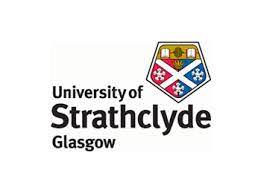University of Strathclyde: Visionary researcher awarded Ernest Rutherford fellowship
An experimental physicist has been awarded a prestigious fellowship to carry out work into next generation optical coatings for gravitational wave detectors at the University of Strathclyde.
Dr Mariana Fazio is one of ten new Ernest Rutherford fellows who will tackle some of the most compelling challenges of tomorrow in the fields of astronomy, solar and planetary science, cosmology and physics.
The £5.6 million investment from the Science and Technologies Facilities Council supports early-career academics in conducting independent research using the UK’s globally recognised skills in astronomy and physics.
Novel research
Dr Fazio, who is also a member of the LIGO Scientific Collaboration, will work alongside Head of Biomedical Engineering, Professor Stuart Reid’s astrophysics research group, and said:
I am thrilled to have been awarded an Ernest Rutherford Fellowship to conduct research in optical coatings for gravitational wave detectors. The state-of-the-art facilities at the University of Strathclyde, established primarily through STFC investment, will provide me with the perfect setting to carry out impactful and novel research.
“I look forward to working in this scientifically stimulating environment alongside expert colleagues in Professor Stuart Reid’s group.
“The fellowship is a unique opportunity to establish myself as an independent researcher and I am delighted to do so at Strathclyde.”
Black holes
Gravitational wave detectors allow us to study the Universe in a new way by measuring the ripples in space-time caused by violent events such as the merger of two black holes. These ripples change the distance between objects by merely a fraction of an atomic radius and GW detectors can measure these changes.
These detectors are the result of decades of development that pushed the very limits of technology across numerous fields of research. An essential part of these detectors is also a significant source of noise: the high-reflectivity mirrors.
Dr Fazio’s work will push beyond the state-of-the-art in laser mirror coating technology to allow the gravitational Universe to be fully opened and to understand the extremes of the Universe.
The Ernest Rutherford fellowships both attract outstanding overseas academics to the UK and encourage talented UK-based researchers to remain in the country. Ernest Rutherford , who died in 1937, was a New Zealand-born British physicist and recipient of the 1908 Nobel Prize in Chemistry. He is often called the ‘father of nuclear physics.’
Exceptional researchers
The fellowships provide exceptional researchers from diverse backgrounds with the opportunity to address exciting questions in science over the next five years.
Professor Mark Thomson, STFC Executive Chair, said: “Our new Ernest Rutherford fellows represent a diverse cohort of outstanding researchers from both within the UK and also from overseas, and they will join and enhance the UK’s world-class programmes in physics and astronomy.”

